
Copper cooking ware is like the royal ensemble for kitchen utensils, people flock to it because of its regal and classy aesthetic. Not only will food look better prepared in copper pots and pans, but some claim that it also tastes better. Copper cookware can last for over 30 years with the proper care. Of course, no one thing is perfect. If copper pots and pans are not maintained well, they can get damaged easily as copper is a very brittle metal. For instance, what most people do not know is that dishwashers are not friendly to copper cooking ware. As such, it is important to be careful when handling copper and not put it into the dishwasher. Read on to find out why!
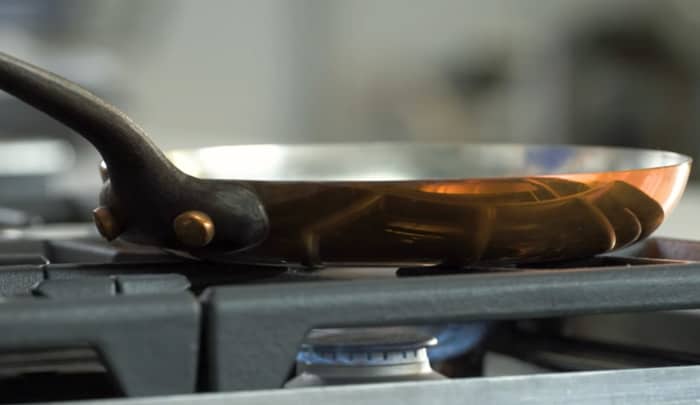
Copper is not suitable for dishwashers, unless it is specified by the manufacturer. Copper cookware should be washed by hand, this will prevent tarnishing and deformation.
Tarnishing and discolorations
While it seems tempting to simply toss all the used pots and pans together into the dishwasher, you might want to consider washing the copper ones with your own hands. In fact, you can put aluminum cookware in your dishwasher, but copper requires more care. Just mix one tablespoon of dish soap with 500ml of water for hand washing. While some copper can still be placed into dishwashers as they are dishwasher safe, check the manufacturer instructions to be sure that you can do this. The only downside is that dishwashers have no limit on the strength used to clean which could cause damage to copper cookware. By putting it in the dishwasher, you risk the utensils becoming tarnished or discolored. Plus, scratches can easily form which means that the copper utensils are no longer as flawless as they should be.
When you place a copper pot or pan into a dishwasher, it becomes exposed to pressurized water and harsh chemicals, like sodium hydroxide, which will cause the wear and tear of the cooking ware. As such, copper cookery should be washed by hand as you will be able to control the strength that you use and also the detergent.
Food might remain on the bottom
While copper pans may make your food taste better, when the ingredients you cook get burnt, they tend to really stick to the pan, which can cause mold problems. If you get it on the bottom, it sticks even more. Putting it in a dishwasher will not focus on the problem area since the dishwasher does an overall cleaning of the utensils. In fact, most stains like that are rarely removed completely in a dishwasher.
Some people suggest that you can turn up the pressure but as mentioned above, this tends to cause more damage to your copper cookery, copper is almost 3 times less resistant than steel. You risk tarnishing and discoloring the pan while the stain still remains stuck on stubbornly.
Inner lining gets removed
Every metal reacts to natural elements in our environment, this applies to copper in particular. This is why manufacturers include an inner silver lining that prevents the copper from reacting to the food. If food were to absorb too much copper, consuming it could be a major health risk, it is estimated that consuming 10ml of copper can become a health issue. People can be adversely affected by this.
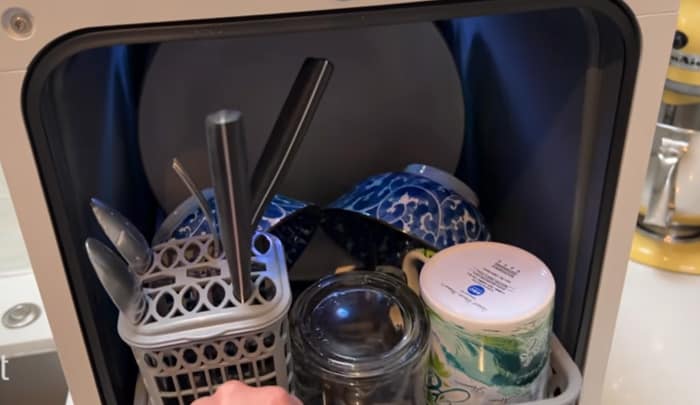
So, washing your copper pots and pans in a dishwasher is not safe because the pressure of the dishwasher not only washes away the surface, it could penetrate through the silver lining as well. So, every time you cook, you might unknowingly make a highly toxic metal. The health hazards that copper poses to the inner workings of our body are extremely undesirable like liver failure and in worst-case scenarios, death. The protective silver lining itself is very thin which is why it is susceptible to getting washed away by the dishwasher.
Shape deformation
If you are unaware, copper is one of the softest metals out there which means that it is more malleable than its steel or iron counterparts. Plus, metals are heated in order for their shape to be changed. Imagine putting a copper pot or pan under high heat (above 70°C) and pressurized water in a dishwasher. The results would be very different-looking cookware as compared to when you first placed it in the dishwasher.
This would not be a problem if you have an artistic flair and enjoy that but it would also be more advisable to buy a canvas for that. Copper pots and pans are rarely inexpensive, one of them can easily cost up to $100 dollars. It would not be worth it financially to pay for a utensil that ends up doing what you do not want it to do. You want to cook proper food with the copper cookery but the deformed shape of it would certainly make that a challenge.
Best Ways To Clean Copper
We hope you are convinced by now that the dishwasher is the last way you should be washing your copperware. The best method is still to do it by hand yourself. Of course, there are times when washing by hand alone might not work but there are various other home remedies that can work that out.
For example, if your pot has burnt food stuck to the bottom of it that is difficult to wash off, do not just increase the strength you are using as you could risk scratching your pots and pans. Instead, consider the process of cleaning the outside of the pan first, which can often be gentler and more effective. You can just soak the affected area in hot water to loosen up the food and remove it with greater ease after that.
Otherwise, you can also try the lemon juice-baking soda trick or vinegar-free alternatives to clean your copper cookware. For the baking soda method, just mix one tablespoon of baking soda for every 500ml of water. These are solutions that you can leave on the affected area which will make the stains easier to clean. Just let the solution rest on it for at least 30 minutes before rinsing and scrubbing it off.
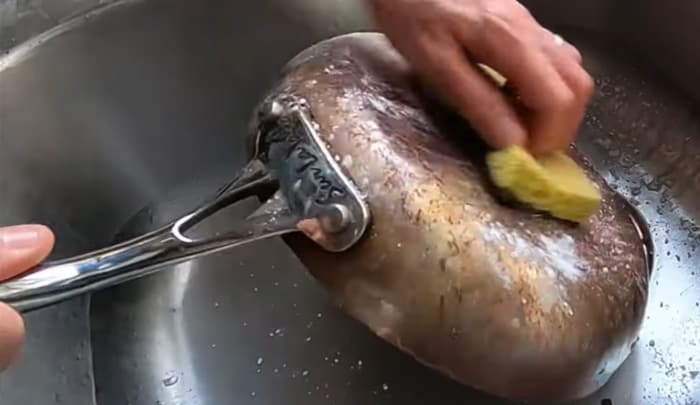
Lastly, when you are done washing the cookware, do not just leave it out in the open to dry. Use a dry cloth or towel to dab it dry so that it does not leave any water stains. This method is similar to how to clean ceramic properly, which also benefits from careful drying to prevent water spots. These are stains that form as a result of pans being air-dried. These stains can be quite unsightly so it is advisable to go the extra mile to prevent this staining from happening.
Dishwashers are definitely not the friendliest to copper pots and pans. Tarnishing, discolorations, the release of toxic elements, and shape deformation are things that can happen to your copper cookery which you would want to avoid. As such, if you can, just use your hands to delicately clean it up instead of the dishwasher.
“The longevity of your copper cookware largely depends on its proper care. “Metallurgically speaking, placing copperware in the dishwasher can accelerate the process of oxidation, causing tarnish and degradation. However, high-quality copper pans coated with a layer of stainless steel or tin are generally dishwasher safe, yet hand-washing is always the safest bet for long-term preservation.”
Dr. Dustin Kensington, Metallurgist
References
https://www.insider.com/guides/kitchen/copper-cookware-pros-cons
https://prudentreviews.com/copper-vs-stainless-steel-cookware/

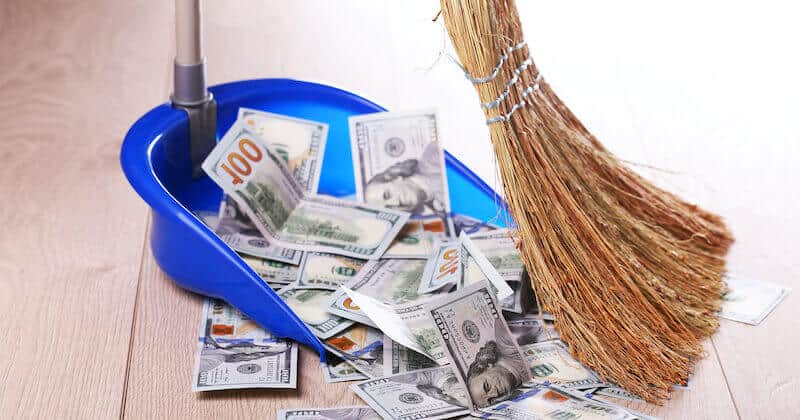
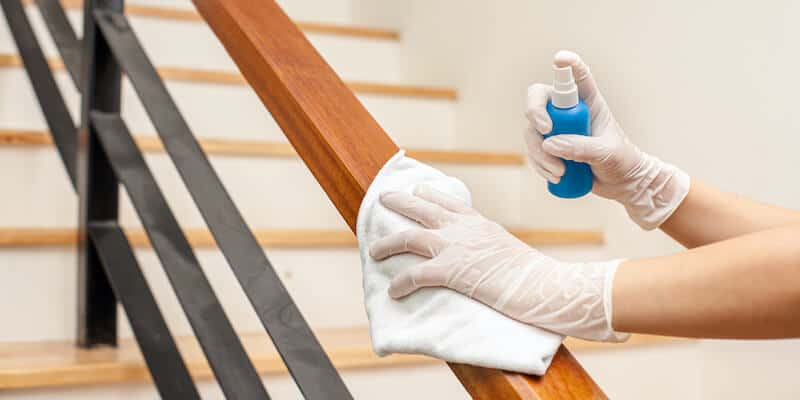


I’ve been cooking with copper pots for a good decade now; it does wonders to the dishes and has a luxurious panache to it. Still, the longevity they attribute to it only holds true when you resist the temptation of the dishwasher and instead opt for a gentle hand wash.
Years of utilizing copper cookware in my own kitchen have taught me the art of preserving these precious tools. I can’t emphasize more on Zahara’s point, hand washing is not just gentle but a necessity to keep these pots and pans pristine.
Entirely agree with Gwendolyn’s insights and Zahara’s mention about copper’s brittleness. I’ve seen many beautifully designed copper tools succumb to the harshness of mechanical dishwashers. In my experience, cerium oxide paste is excellent for preserving copper’s shine and preventing tarnish, especially for those inherited heirlooms. Also, soft cloths for polishing, they’re your best friends for keeping these precious items in pristine condition.
Xerxes, you’re hitting the nail on the head about cerium oxide paste and I second your suggestion. My mum had these antique copper pots that she very dearly took care of, using a similar paste. It certainly beats any chemical cleaner in preserving and maintaining that fine patina that copper develops over time.
I remember my grandmother telling me about the dangers of storing acidic foods like tomato sauce in copper pans as the acid can corrode the metal and cause it to leach into the food, giving it a metallic taste.
When I bought my first set of copper pans, I made the rookie mistake of putting them in the dishwasher. The damage was disheartening to behold. They ended up tarnished and beyond repair, which definitely taught me a valuable lesson about their fragility.
Acidic foods indeed have a corrosive effect on copper. Corrosion occurs when copper reacts with the environment, leading to uneven spots which ultimately ruin its aesthetic appeal as well as functionality.
Demetrius, your experience mirrors mine when I was an amateur cook decades ago. The dishwasher debacle with my first set of copper pots was disheartening – tarnished beyond repair! Years of culinary experience have since taught me the prudence about when and how to clean copper utensils.
That’s exactly how I damaged my first copper skillet, Timothy! It was an expensive mistake that I won’t forget as I popped it into the dishwasher without thinking twice, ignoring its need for proper care. Nowadays, after service ends, you’ll find me hand-washing all our copper pans in the restaurant – it’s almost calming, to be honest. Keeping them polished and clean not only maintains their efficiency but also brings out their natural beauty which always adds an extra touch to the presentation of the food.